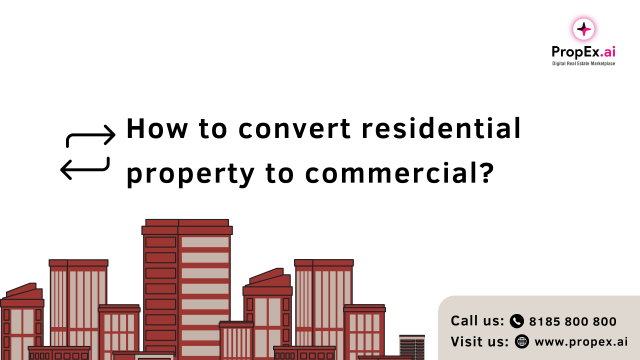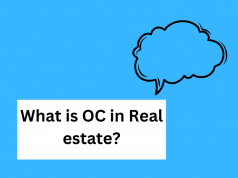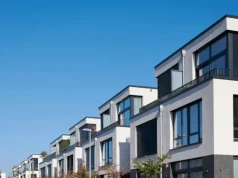While trying to convert a residential property to a commercial one, there are multiple possibilities involved. The real-estate sector is always evolving, currently, the Indian real-estate sector is supposed to begin its boom.
When the markets are on the rise, it is natural for investors to cash in on such opportunities. Whether it’s converting a house into a café or a boutique office, the possibilities are limitless. Making the transition from just an idea to taking up the initiative can be quite an endeavor.
Let us understand all the intricacies of this transformation process by answering some questions. Such as, is it possible to convert a residential property to a commercial one? What is the process of successfully making this conversion? Let’s also look into the technical jargon that one must understand before taking up a project.
Can Residential Property Be Used for Commercial Purposes?
Any residential property can be used for commercial purposes. However, while you’re trying to make this conversation there are a multitude of factors you’d have to consider.
Primarily, a residence that’s in an urban neighborhood might find new life as a boutique or a quaint café. There have been instances where an apartment with many rooms has been converted into a professional office space.
The type of structure you want to convert your space to is something considerable as larger-scale endeavors. Such as industrial facilities, and mega-retail stores are particularly challenging due to the specific requirements needed.
Factors to Consider Before Conversion
Zoning Regulations
It plays a pivotal role in determining whether the conversion is possible or not. Local zoning laws stipulate the designated use for properties in areas ranging from residential to commercial, industrial, and more. Therefore, the first step is to research and understand the zoning classification of your property.
Firstly, understand the zoning classification of the property you want to convert
Secondly, investigate whether your local zoning laws allow for mixed-use properties.
Don’t worry if it isn’t allowed, as you can apply for rezoning. Rezoning involves taking approval from local authorities to change the designated property use case. You can consult with relevant businesses for it, as the city planning department should necessarily sign off on it.
Property Location and Market Demand
The location is also a pivotal factor in determining what potential makeover will be suitable for your existing property. If it’s on a street with high-traffic volume, then you can think of a commercial venture. The next would be to research if there’s market demand for the type of commercial establishment you’re envisioning.
Prime location as well as high visibility and accessibility are criteria for high-demand commercial spaces. The demographic traits of the region will determine the success of your property transformation.
What is the process of changing from residential to commercial?
Legal Considerations
Understanding the legal premise of such a project is highly recommended if you aren’t informed about real estate.
- If you’re not careful, you may end up in a legal fix after you convert your residential property to a commercial one. From property rights to building codes, several aspects need to be navigated delicately.
- One of the concerns is compliance with local building codes and regulations.
- Commercial spaces often have different safety and accessibility requirements compared to residential properties. Look for experts to hand over your designs and reaffirm that you aren’t violating any civil code provisions.
- Ensuring that your property aligns with these codes is essential. It is not only essential for legal compliance but also for the safety of all the occupants.
- Commercial properties are typically assessed differently which could potentially result in changes to your property tax obligations. Consulting with a tax professional or assessor can provide clarity on the financial implications of this conversion.
Lease Agreements and Contracts
If you’re planning to lease the newly converted commercial space, drafting robust lease agreements and contracts is paramount. These documents should outline the terms and conditions of the lease. Including rent, duration, maintenance responsibilities, and any clauses related to the nature of the commercial use.
Leasing a commercial property often entails longer lease terms compared to residential leases. It can benefit both parties, providing the tenant with a location for their business and the landlord with consistent rental income. It also means that consideration must be given to the terms of the lease for a mutually beneficial arrangement.
Tax Implications and Assessments
- Encountering tax considerations, such as sales tax or business license fees, depends on the nature of your commercial venture.
- Consult with a tax advisor to gain an understanding of the financial implications that accompany such a project.
- The financial impact extends beyond the immediate tax consequences.
It is not just about the immediate tax consequences. Converting a property changes the overall financial outlook of the property. It affects factors like property value, potential rental income as well as future resale value. You should evaluate the long-term financial implications before converting your property type. And ensure that it agrees with your investment goals.
Budgeting for the Conversion Process
Before starting the conversion journey, it’s crucial to establish a comprehensive budget that accounts for all expenses. This budget should encompass not only the immediate costs of the conversion but also any ongoing operational expenses.
Begin by assessing the financial resources at your disposal. Consider whether you’ll be funding the project from your savings, a loan, or investors. With an understanding of financial capacity, you can determine the scope of the project and allocate funds.
Also Read: What is commercial property
Cost Breakdown
Permits and Fees
Necessary permits should be obtained to convert the property type which will have the associated fees. The costs for this vary depending on the location, project scale, and type of commercial use.
It’s essential to allocate a budget for these permits and fees, as these are non-negotiable expenses for regulatory compliance.
Construction and Renovations
The bulk of your budget will likely be allocated to construction and renovations. Converting a residential property to a commercial space might involve structural changes, layout modifications, interior design, and more. Collaborating with architects, contractors, and designers will help you estimate the costs of these activities accurately.
Keep in mind that unforeseen expenses can arise during construction. So it’s wise to have a contingency fund to address any unexpected developments without derailing the project.
Conclusion
In this article, the primary question of “How to convert residential property to commercial” must have been addressed. If you ever wondered what is the process of changing residential to commercial, keep in mind:
- Legal consideration
- Legal agreements and contracts
- Tax implications and assessments
- Budgeting for the converting process
- Cost breakdown
Are you looking out to convert the property to a commercial one? Seek professional help from Propex who can help you in the entire process of successful conversion. Well, you don’t have to worry about being left alone in the process with Propex. Enquire with us now.





